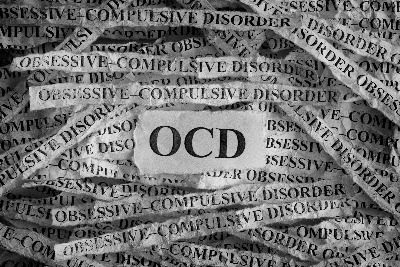
Obsessive Compulsive Disorder (OCD) is one of the more commonly depicted mental health disorders in TV and movies. Unfortunately, most of the time these portrayals are quite inaccurate, and therefore have contributed to much misunderstanding about what OCD really is. Here are five misconceptions that I hear often, and the truth behind them.
Everyone has a little OCD.
Not only is the statement false, but it is actually harmful for those who truly suffer from OCD. Many people like things a certain way, or are obsessive or compulsive about something, but these personality traits, thoughts, or behaviors are very different from the psychological disorder of OCD. Approximately one in 100 people meet the criteria for OCD, which can affect people at any age. To be diagnosed with OCD, the obsessions (intrusive thoughts or images) and compulsions (something done in an effort to reduce the obsessions or related fear) must cause significant distress or impairment in one’s functioning. Saying, “that’s so OCD,” or something similar about a behavior, thought, or trait that does not actually occur as part of OCD is hurtful to people who have the disorder because it minimizes their suffering and makes a joke about something very serious.
Everyone with OCD washes their hands too much.
Compulsive hand washing is a symptom of one type of OCD, a type in which the sufferer’s obsessions surround contamination or a fear of getting sick. This is just one of many types of OCD, each of which are very different from another. For those with another type of OCD, compulsive hand washing is not an issue at all. Instead, those with other forms of OCD will have other compulsions such as checking, reassurance seeking, or arranging things in a certain way. Usually the compulsion directly relates to the obsession, such as hand-washing to neutralize the fear of getting sick, but sometimes it does not. There are many people with OCD who do not do any compulsions that can be witnessed by others, as their compulsions are all done in their head such as trying to figure out whether harm will come to someone.
People with OCD are weird or crazy.
There seems to be even more stigma associated with OCD than other mental health disorders like anxiety or depression. This is at least partially due to the inaccurate depictions of OCD in film and TV, but also due to misinformation about the disorder spread through social media and word of mouth. Many people who I see with OCD are afraid to tell friends and family that they have OCD for fear of judgment. You likely know people with OCD but just don’t realize they have it because they are able to hide it. People with OCD are just like any other person, they just have a mental disorder similar to an anxiety disorder. OCD sufferers are not psychotic and they are completely in touch with reality. As “crazy” as their obsessions might sound, they recognize how unrealistic the fear is but are just not able to completely let it go due to the slight possibility that it could occur.
People with OCD just need to try harder to get over it.
Because OCD is a serious mental disorder, most people with OCD cannot simply stop the obsessions or compulsions on their own. The majority of people who have learned to manage their OCD symptoms have done so through a combination of therapy and medication. A specific type of Cognitive Behavioral Therapy (CBT) called Exposure and Response Prevention (E/RP) is the first line of treatment for OCD. This treatment involves gradually reducing the compulsions while being exposed to the feared situations or thoughts. In milder OCD cases, sometimes reading a self-help book like “Freedom from OCD” by Jonathan Grayson can give the OCD sufferer the tools they need to fight the disorder on their own. However, in the majority of cases, people with OCD are not able to self treat, and need the help of a CBT therapist specializing in OCD.
People with OCD can never live a normal life.
While there is no 100 percent cure for OCD, many people are able to live symptom-free for long periods of time. The most common outcome for someone who completes E/RP with an adequately trained therapist is approximately 90-95% symptom reduction. So it’s common to still have occasional obsessions pop up, but they will occur much less often and be much less intense. Once someone has completed E/RP, they have the knowledge and tools to fight OCD, so whenever it resurfaces they can deal with it quickly and it may not have much impact on their life.


